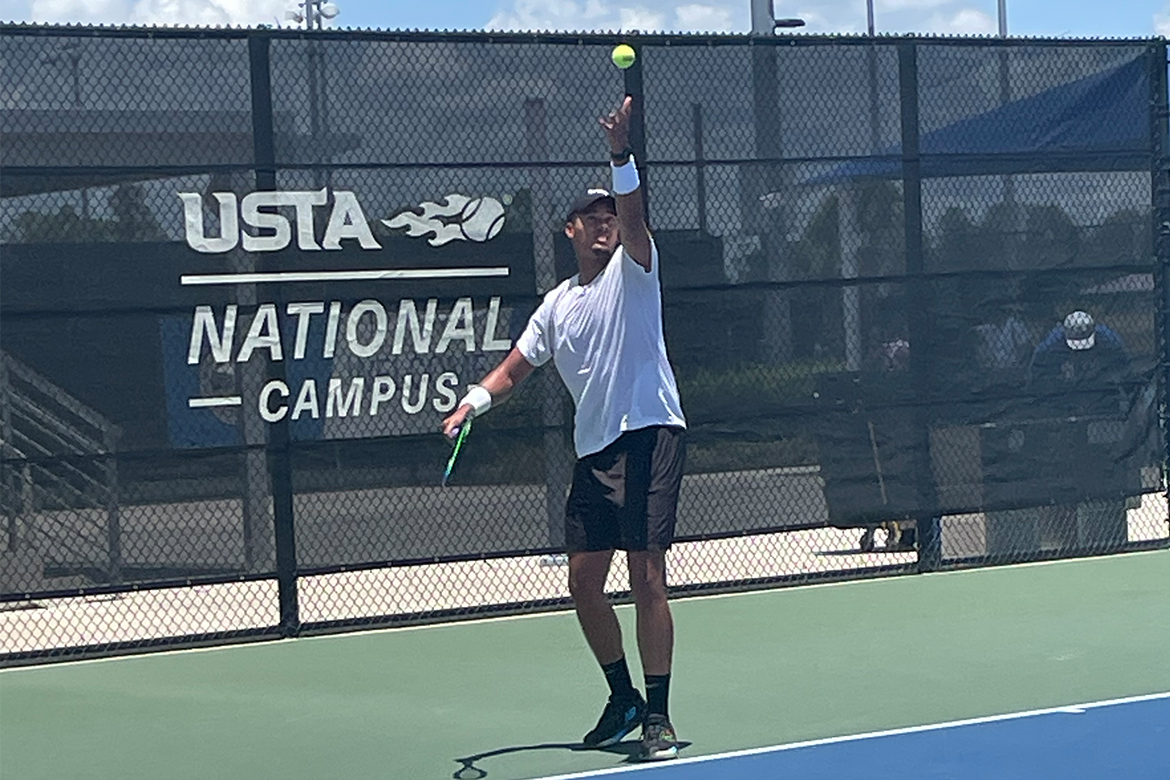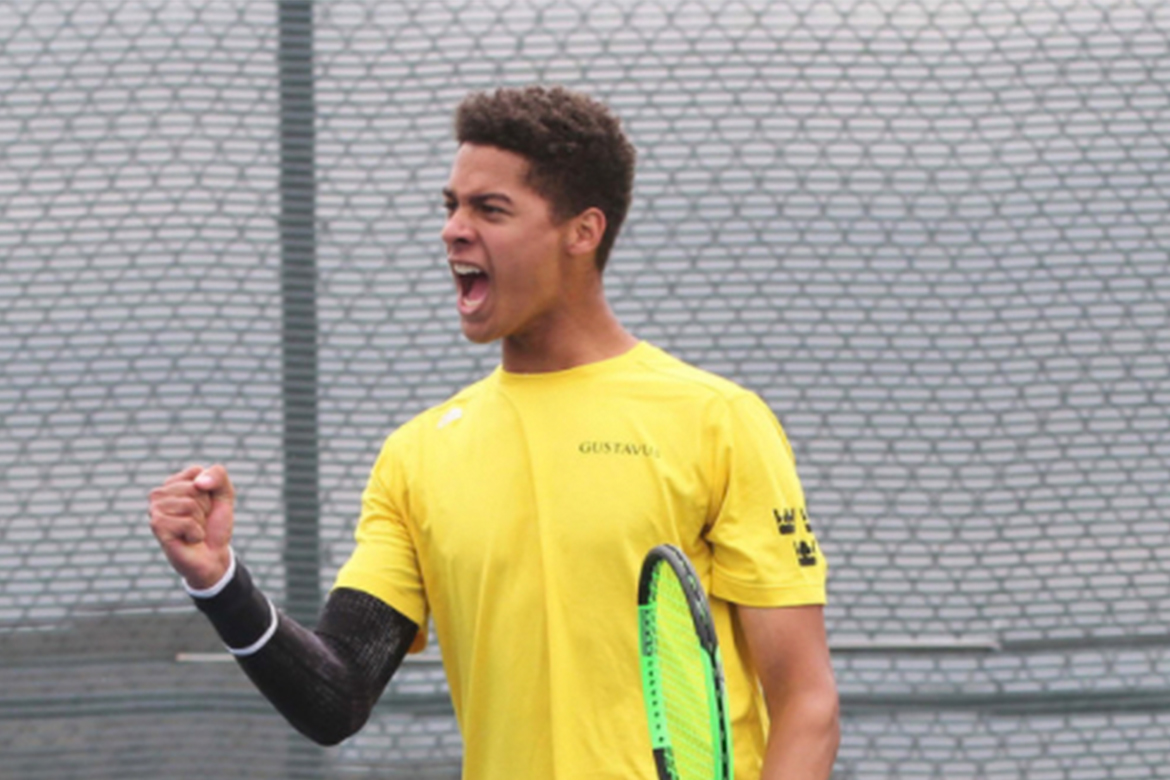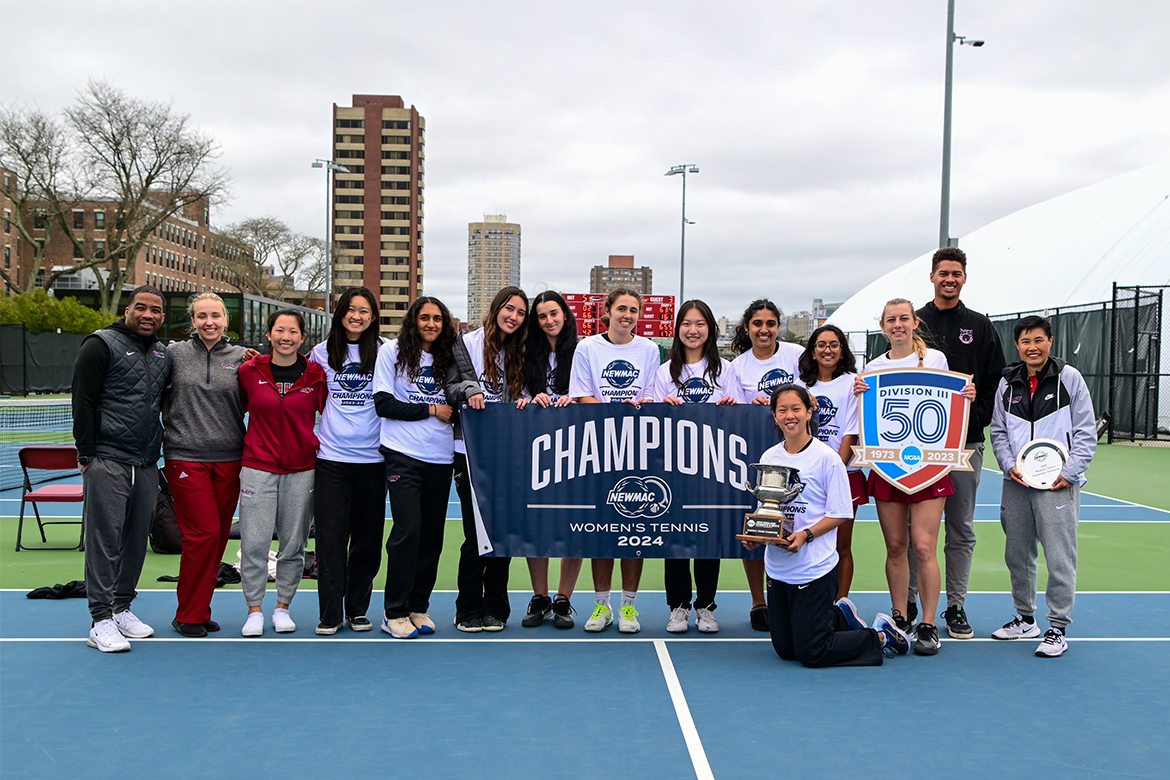As we celebrate Black History Month throughout February, we look toward leaders in tennis who are working to spread this sport far and wide, reaching deep into communities to impact youth and adults on many levels. This month, you’ll meet USTA national volunteer leaders who are telling their first-person stories and who recognize the influences family, friends, teachers and coaches have had on the direction their lives and careers have taken—and how that direction is positively impacting the newest generations. Today, meet Mason Bultje.
I was probably 3 years old when my stepfather first put a racquet in my hand. He was an avid player, and ever since I hit my first tennis ball, I haven’t looked back.
Of course, growing up in Mankato, Minn., a little over an hour south of the Twin Cities, posed challenges of its own when it came to tennis, since it was pretty disconnected from major tennis activity. My second home, though, was a four-court indoor facility in Mankato which, while not in great shape, truly helped to develop my passion and skill for the sport.
 But in my sophomore year in high school, the indoor facility closed (and still today, there are no indoor courts in Mankato), and I no longer had a coach. I had already been feeling barriers to tennis—not just with being off the beaten path when it came to major tennis activities, but with the barriers of being part of a population that’s underrepresented in the sport.
But in my sophomore year in high school, the indoor facility closed (and still today, there are no indoor courts in Mankato), and I no longer had a coach. I had already been feeling barriers to tennis—not just with being off the beaten path when it came to major tennis activities, but with the barriers of being part of a population that’s underrepresented in the sport.
I wouldn’t say I was really a ”USTA kid” growing up—it was challenging to access the junior circuit for someone like me—so I felt a bit like an outsider.
If there was a silver lining, though, it might be that when the facility closed, I became more involved in school as a volunteer—and more importantly, it taught me the value of everyone being able to have access and about how important it is to reach those who are under-represented.
In college, I played on the tennis team at Gustavus Adolphus, a D-III school in St. Peter, Minn., where I received a degree in 2018 in exercise physiology. I originally planned to continue my education in physical therapy, but I took a gap year and worked with Innercity Tennis, an award-winning NJTL in Minneapolis. I worked there in various roles until August 2022, when I moved to the Boston area to join my wife, who was there for medical school.
We currently live in Cambridge, Mass., and I’m the director of partnerships and programs at the acclaimed Sportsmen’s Tennis & Enrichment Center in Dorchester, where I focus on building strategic relationships and expanding program initiatives.
I’m also the assistant coach for the MIT women’s tennis team, and a member of the USTA New England Board of Directors, and I make sure to find time to compete in 5.0 leagues and other USTA tournaments.

One of the most influential things in my life and career was when I took part in 2019 in the first DIVE cohort—the USTA’s National Diversity Immersion for Volunteer Engagement. The DIVE program, which has since been discontinued, was fantastic, and for a young volunteer from an under-represented segment of the sport looking to get even more involved, I found it invaluable.
Before participating in DIVE, I wasn’t fully aware of the extent to which volunteers drive the work within the USTA ecosystem. Over two years, I gained a deeper understanding of USTA’s structure, developed leadership skills, and built meaningful connections with passionate volunteers across the country.
The DIVE program played a pivotal role in shaping my involvement as a volunteer in the tennis industry. It empowered me to join the USTA Northern Board of Directors in 2021, then the USTA New England Board in 2024, where I currently serve as chair of the Grants Committee. Now, for the 2025-2026 term, I’m also a member of the USTA National Emerging Leaders Committee—furthering my commitment to advancing tennis through strategic leadership and community engagement.
I met one of my mentors, former USTA Senior Director Bill Leong, through the DIVE program. Bill, who now heads his own consulting firm, instilled in me the importance of intentional, continuous, personal and professional development—lessons that continue to drive my pursuit of learning and my commitment to maximizing my impact in the field. I’ve also benefited greatly from working closely with Toni Wiley, the CEO at Sportsmen’s—one of the most respected and influential leaders in the nonprofit tennis industry. Her guidance has been invaluable, providing first-hand insight into effective leadership and strategic decision-making.
Through my experiences and my mentors, I’ve become a strong advocate for amplifying the voices of individuals with marginalized identities. I truly believe representation is crucial. And while diversity in tennis is growing, we need to continue to build on this progress with intentionality.
Celebrating Black History Month and honoring the stories and contributions of Black Americans is an important step, but true equity goes beyond recognition. It requires not only ensuring Black individuals have a seat at the table but also empowering them with a platform to be heard and to influence meaningful change.
I hope I can inspire others to get involved, and that they will feel their own unique background is both desired and seen as an asset. For much of my upbringing, I felt like an outsider, that I was some random kid who could play at a decent level. But now I feel embraced and that I can help contribute to this industry as a whole. I hope my experiences can help make a difference, even for one person.
USTA | Edited by Peter Francesconi | February 07, 2025


